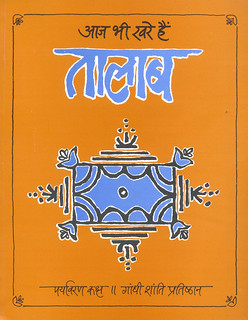I recently had a profound experience at the Learning Societies UnConference, a collaborative event initiated by Udaipur-based Shikshantar group and Swaraj University, and created by around 600 participants.
As some of you might know, Shikshantar and Swaraj are into alternative education but people, young and old, with diverse interests joined in to celebrate life at the unconference. So here’s what happened in seven days that will have a great resonance in my life ahead.
I arrived at Sardarshahr, the venue in north Rajasthan the evening before the unconference was to start. A friend was to arrive the next day and there were not many people around except a lot of young volunteers and organisers.
After parking my luggage I was sitting outside one of the buildings on the campus killing time with my mobile when two girls who were passing by stopped.
“What are you doing here?”
“Nothing”
“Why don’t you come with us, we are going to hang out and have dinner outside”.
I was wondering if this was for real. By the time we reached the dhaba, there were 20 of us, mostly strangers deciding to share food. And this I realised later is the spirit of unconference: “Nobody is an outsider. Everyone is welcome.”
 |
| The wall painting |
The unconference, as can be seen from its name, has no pre-planned agenda. Chaos is the theme to let creative energies emerge.
So every day after breakfast, we would gather in the open space, do a few warm up dances and then anyone could raise their hands and say what they want to do today, declare a venue and time for it.
Those interested could join any of these activities which included things as diverse as doing hip hop to discussing parenting, reversing biological age, learning stop motion animation, and even making music from every day things. There were no speakers and attendees roles as all of those who joined co-created these activities.
Those who did not want any of these could go on play Frisbee, volleyball or indulge with kids in the sand pits. Still others who found all this maddening were free to find or create their own spaces to muse about futility of doing anything.
So in those six days I ended up making dolls from pine leaves, learnt a few Kathak steps from a 10-year-old, upgraded my Bollywood dance moves, helped paint a wall, attended a session on NLP, tried learning cartwheeling from two young and domineering Italian girls (and failed), got a few helpful German phrases to use, and watched some amusing short movies.
Nights came alive with multiple bonfires where smaller groups either read poetry, did music, played dumb charades or carried on with intense discussions about menstruation or indigenous Indian traditions.
It was as if college days were back, minus the boring lectures. And yes going back to college in mid 30s is much more fun. Kids of course had more fun than us. They also promptly put up massage parlours and games at the flea market-cum-fair to earn the Tucs, a parallel currency tried at LSUC.
On relationship front, we had speed dating, which I didn’t attend but heard was a failure as more guys turned up than girls (usual damn) and another session on finding a partner for long term which I attended and went well. Here the already committed gave some really useful advice and singles relayed confused sounds, as usual. My take away was: First know yourself, prioritise the values you can't compromise on, tell your close friends about the kind of person you are looking for and then spend some good, long time with the referred person.
Another warm session (with quilts) had us discussing unconditional love which had Sufi stories mixed with personal experiences and moans.
There were so many other things that we did and bonded over. The most important thing for me was the realisation that there are so many possibilities of living with abundance. I consider myself to be lucky being without a usual 9 to 5 job, EMIs to pay and still sustaining. But this event told me there’s still a lot to shed… especially tears. Yes, I always considered myself dry eyed, and here I was crying copiously, many a times being moved by a simple statement or sharing.
 |
| That's Manish Jain on the left, dear friend Shibu & my Tirchi Topi self. |
At one of the nights, Manish Jain, the founder of Shikshantar shared his Shamanic experiences from south America which says that the natural forces get activated between 12 to 6 at night, so whatever dreams you get around that time are messages from the other world. This meant that 15 people huddled into the room I was sharing with a friend and slept off with the question: "Why we are here? Why this unconference in the desert?" I could not get into the mode due to the snores of early sleepers. But one of them had a very clear message to share. What he saw was a thick forest where so much is concealed and then a desert where things are evident. Everything has to come out or is revealed by the moving sands. That's why we were there: To find our true selves. It’s difficult to be back from that place.
But at least we know how we can create our own spaces now amidst all that madness around. And that’s the best gift to take to 2017.
I wish you can experience this blessing too.
See more videos and pics from the unconference at this facebook page


